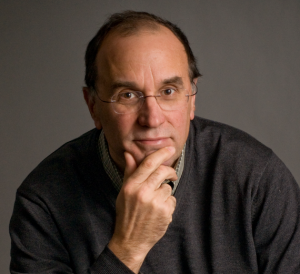
Professor of Materials Science and Engineering, Massachusetts Institute of Technology
Dr. Michael J. Cima is a Professor of Materials Science and Engineering at the Massachusetts Institute of Technology and has an appointment at the David H. Koch Institute for Integrative Cancer Research. He earned a B.S. in chemistry in 1982 (Phi Beta Kappa) and a Ph.D. in chemical engineering in 1986, both from the University of California at Berkeley. Prof. Cima joined the MIT faculty in 1986 as an Assistant Professor. He was promoted to full Professor in 1995. He was elected a Fellow of the American Ceramics Society in 1997. Prof. Cima was elected to the National Academy of Engineering in 2011. He now holds the David H. Koch Chair of Engineering at MIT. He was appointed faculty director of the Lemelson-MIT Program in 2009 which is a program to inspire youth to be inventive and has a nationwide reach.
Prof. Cima is author or co-author of over two hundred and fifty peer reviewed scientific publications, fifty US patents, and is a recognized expert in the field of medical devices and materials processing. Prof. Cima is actively involved in materials and engineered systems for improvement in human health such as treatments for cancer, metabolic diseases, trauma, and urological disorders. Prof. Cima’s research concerns advanced forming technology such as for complex macro and micro devices, colloid science, MEMS and other micro components for medical devices that are used for drug delivery and diagnostics, high-throughput development methods for formulations of materials and pharmaceutical formulations.
He is a coinventor of MIT’s three dimensional printing process. Machines and products by many licensees using this process are used throughout the world. His research has led to the development of chemically derived epitaxial oxide films for HTSC coated conductors. He and collaborators are developing implantable MEMS devices for unprecedented control in the delivery of pharmaceuticals and implantable diagnostic systems. Finally, through his consulting work he has been a major contributor to the development of high throughput systems for discovery of novel crystal forms and formulations of pharmaceuticals. Prof. Cima also has extensive entrepreneurial experience. He is co-founder and director of MicroChips Biotech., a developer of microelectronic based drug delivery and diagnostic systems. Prof. Cima took two sabbaticals to act as senior consultant and management team member at Transform Pharmaceuticals Inc. a company that he helped start and that was ultimately acquired by Johnson and Johnson Corporation. He is a co-founder and director at T2 Biosystems a medical diagnostics company. Prof. Cima is also a co-founder and director of Taris Biomedical a company specializing in pharmaceutical products for urology.
Prof. Cima is devoted to engineering education and was the instructor in charge of 3.091 (Introduction to solid-state chemistry) from 2011 through 2014 which is a unique MIT course. This course has satisfied the freshman chemistry requirement at MIT for over forty years. It is the first engineering course that MIT students will encounter and has over 300 students. It has been offered many times since 2012 as 3.091x to students world-wide over the edX platform. Many tens of thousands of students have participated.
Prof. Cima has been faculty director of the MIT Glass Lab for the past twenty-seven years. He arrived at MIT when it was known for producing students with spectacular individual achievement, but poor teamwork skills. MIT was in the midst of trying to address this issue when he had the idea of using an extracurricular activity to build teamwork skills. He happened on an old studio glass blowing facility in the basement at the center of campus and several students interested in rebuilding it. Studio glass blowing is the only craft art that you cannot do by yourself. It is done as a team. Today the Glass Lab is the most oversubscribed class at MIT with classes composed of students from all departments at MIT. It is a great way for students to learn how to improvise together to solve problems and have fun doing it.

